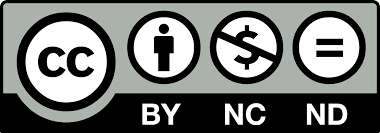Stres w pracy a motywacja pracowników
Adam Rudzewicz
Wydział Nauk Ekonomicznych, Uniwersytet Warmińsko-Mazurski w Olsztyniehttps://orcid.org/0000-0002-7807-9375
Abstrakt
Współczesne środowisko pracy stawia przed organizacjami wiele wyzwań związanych z zarządzaniem stresem i motywacją. Głównym celem przeprowadzonych badań jest określenie relacji między stresem występującym w miejscu pracy a poziomem motywacji pracowników. Postępowanie badawcze przeprowadzono na przykładzie pracowników instytucji samorządowej (urząd miasta) w Polsce północno-wschodniej, zgłębiając ich doświadczenia związane z napięciem zawodowym (stresem) i deklarowaną motywacją. W badaniu wykorzystano kwestionariusz ankiety internetowej. Próba badawcza składała się z 90 osób (100% kadry pracowniczej). Głównym wnioskiem wynikającym z badań jest to, że mało kto nie doświadcza stresu w miejscu pracy. Jest to istotne spostrzeżenie, które podkreśla powszechność występowania tego zjawiska. Oczywiście nie zawsze jest to poziom dysfunkcyjny. Zauważyć jednak należy, że co piaty pracownik jest nim dotknięty w sposób poważny. Badani wykazali umiarkowany poziom swojej motywacji zawodowej. Większość personelu koncentruje się na obowiązkach zawodowych i dostrzega swoje zaangażowanie, ale praca nie jest ich pasją. Stwierdzono negatywną korelację między poziomem stresu a motywacją zawodową. Istnieje także różnorodność w sposobie, w jaki stres wpływa na motywację. Zależnie od płci, wieku, dochodów i pozycji zawodowej pracowników relacja ta jest wyraźnie odmienna. Mężczyźni wykazują większą podatność na spadek motywacji w sytuacjach stresowych w porównaniu z kobietami. Ponadto osoby na stanowiskach kierowniczych wykazują słabszą korelację między stresem a motywacją, czyli ich motywacja nie jest tak mocno powiązana ze stresem, jak w przypadku pracowników na niższych stanowiskach. Podobnie relacja ta kształtuje się w przypadku osób starszych w stosunku do osób młodszych oraz lepiej zarabiających w stosunku do osób gorzej wynagradzanych.
Słowa kluczowe:
stres, motywacja, pracownik, urząd miastaBibliografia
Baka, Ł., & Basińska, B.A. (2016). Psychometric Properties of the Polish Version of the Oldenburg Occupational Burnout Questionnaire (OLBI). Occupational Medicine, 67(1).
Crossref
Google Scholar
Gajda, E., & Biskupek-Wanot, A. (2020). Stres i jego skutki. In A. Biskupek-Wanot, B. Wanot, & K. Kasprowska-Nowak (Eds.). Aktywność fizyczna i problematyka stresu. Częstochowa: Wydawnictwo Naukowe Uniwersytetu Humanistyczno-Przyrodniczego im. Jana Długosza. http://dx.doi.org/10.16926/afips.2020.07.
Crossref
Google Scholar
Harasim, K. (2018). Stress in High-Risk Occupations. Humanum. International Social and Humanistic Studies, 28(1). Google Scholar
Hobfoll, S.E. (2006). Stress, Culture and Community. The Psychology and Philosophy of Stress. Gdańsk: GWP. Google Scholar
Humeniuk, E., Dąbska, O., Pawlikowska-Łagód, K., & Bytof, B. (2017). Level of Professional Stress among Teachers. Chowanna. Katowice: University of Silesia Publishing House. Google Scholar
Hysa, B., & Grabowska, B. (2014). Motivation System of Ppublic Administration Employees on the Basis of a Selected ZUS Unit. Zeszyty Naukowe Politechniki Śląskiej. Organisation and Management, 74. Google Scholar
Knap-Stefaniuk, A., Karna, W.J., & Ambrozová, E. (2018). Motivating Employees as an Important Element of Human Resource Management – Challenges for Public Eeducation. Scientific Quarterly of Vistula University, 2(56). Google Scholar
Koszyk, R. (2018). Radzenie sobie ze stresem studentów uprawiających sport wyczynowo. Lublin: Wydawnictwo Uniwersytetu Marii Curie-Skłodowskiej. Google Scholar
Kozłowski, W. (2020). Employee Motivation as an Element of the Development Process in an Enterprise. Olsztyn Economic Journal, 15(3). https://doi.org/10.31648/oej.6539.
Crossref
Google Scholar
Liszkova, M. (2020). Psychological Aspects of the Teaching Profession. Polonia Journal, 12. Google Scholar
Michalik, K. (2009). Typology of Motivation Factors. Zeszyty Naukowe Małopolskiej Wyższej Szkoły Ekonomicznej w Tarnowie, 13(2). Google Scholar
Mitanchez, D., Yzydorczyk, C., Siddeek, B., Boubred, F., Benahmed, M., & Simeoni, U. (2015). The Offspring of the Diabetic Mother – Short- and Long-Term Implications. Best Practice & Research. Clinical Obstetrics & Gynaecology, 29(2).
Crossref
Google Scholar
Neta, M., & Haas, I.J. (2019). Movere: Characterizing the Role of Emotion and Motivation in Shaping Human Behavior. In M. Neta, & I.J. Haas (Eds). Emotion in the Mind and Body. Nebraska Symposium on Motivation, vol. 66. Cham: Springer. https://doi.org/10.1007/978-3-030-27473-3_1.
Crossref
Google Scholar
Ostrowska, M., & Michcik, A. (2014). Stress at Work – Symptoms, Consequences, Prevention. Occupational Safety: Science and Practice, 5. Google Scholar
Piernikowska, A., & Podsiadły, D. (2019). Strategies of Coping with Stress in the Opinion of Nurses. Włocławek: Państwowa Akademia Nauk Stosowanych. Google Scholar
Rudzewicz, A. (2017). Trust in the Enterprise – Meaning and Measurement. Journal of Management and Finance, 15(2/1). Google Scholar
Setyo, Y.B., Wulal, P., & Redan, W.B. (2020). Stress and Performance of Elementary School Teachers of Southern Papua: A Survey Approach. Universal Journal of Educational Research, 8(3).
Crossref
Google Scholar
Skoczek, M., Kuberski, M., Biskupek-Wanot, A. (2020). Occupational Stress. In A. Biskupek-Wanot, B. Wanot, & K. Kasprowska-Nowak (Eds.). Physical Activity and Stress Issues. Częstochowa: Scientific Publishers of the Jan Długosz University of Humanities and Sciences. http://dx.doi.org/10.16926/afips.2020.08.
Crossref
Google Scholar
Snopko, J. (2014). Modern Motivational Systems of Employers and Employees. Prace Naukowe Akademii im. Jana Długosza w Częstochowie. Pragmata Tes Oikonomias, 8. Google Scholar
Szczygieł, M. (2020). Stres w pracy nauczyciela – wybrane uwarunkowania. Culture – Society – Education, 2(18).
Crossref
Google Scholar
Vidotti, V., Martins, J.T., Galdino, M.J.Q., Perfeito Ribeiro, R., & do Como Cruz Robazzi, M.L. (2019). Burnout Syndrome, Occupational Stress and Quality of Life among Nursing Workers. Entermeria Global, 18(3), 344-376. https://doi.org/10.6018/eglobal.18.3.325961.
Crossref
Google Scholar
Wydział Nauk Ekonomicznych, Uniwersytet Warmińsko-Mazurski w Olsztynie
https://orcid.org/0000-0002-7807-9375
Licencja

Utwór dostępny jest na licencji Creative Commons Uznanie autorstwa – Użycie niekomercyjne – Bez utworów zależnych 4.0 Międzynarodowe.
Każdy Autor składa oświadczenie, że praca nie była wcześniej publikowana (pod tym samym lub innym tytułem, nie stanowi również części innej publikacji) oraz nie narusza praw autorskich innych osób. Jednocześnie Autor przenosi na wydawcę wyłączne prawo wydania i rozpowszechniania tego utworu drukiem w formie zwartej publikacji czasopisma oraz w formie publikacji elektronicznej.
Czasopismo udostępnione jest na licencji Creative Commons CC-BY-NC-ND






